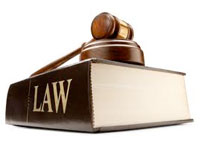 The government has announced that it will hold a referendum on January 28, after announcing a December 3 poll, to decide whether the majority of Bahamians will support the legalization of web shops or the buying of “numbers”.
The government has announced that it will hold a referendum on January 28, after announcing a December 3 poll, to decide whether the majority of Bahamians will support the legalization of web shops or the buying of “numbers”.
It appears that this is intended to be in fulfillment of a promise made during the last election cycle. I simply do not recall there being a deep and intense debate about gambling during the campaign; but I may have missed it during the other silly utterances that were made. I also offer no comment on the timing of the poll, other than to say that in my opinion more critical issues deserve the government’s attention so early in its term. It gives a false impression of the intentions.
It must also be noted that all of the public utterances on this issue have been made by the prime minister. The Cabinet minister with responsibility for gaming and the chairman of the Gaming Board have been (mysteriously) silent on the issue. Some Cabinet ministers have already indicated how they will vote to the question posed in the referendum. Several church groups have also indicated their opposition to the legalization of web shops. Web shops (or gaming houses) have launched a “vote” yes campaign and have spent considerable sums to persuade voters.
It should be noted that the majority of Bahamians probably agree with a government eliciting their opinions on matters of national interests. I am one of those Bahamians. The simple truth is that such a process, if used properly, could add great merit and potential to the development and evolution of our democracy. There are many benefits that will flow to our nationhood if Bahamians have a louder voice on national matters such as LNG, oil exploration, campaign finance and if we follow the western world, civil unions. A participatory democracy is one that has and allows more voices to aid in the crafting of rational national policy objectives. This should be our goal.
The law
I too am a believer that a duly elected government of The Bahamas must act in strict compliance with the law and must, at all times, show and manifest a deep appreciation and respect for the rule of law. It appears that in this instance the government has allowed itself to be persuaded that holding such a referendum or even an opinion poll would be in compliance with the laws of The Bahamas. It is this fallacy that has caused some concern as to whether the government has the legal right or jurisdiction to hold such a referendum.
The tragedy is that it appears that no one advised the prime minister that there can be no referendum under our existing law for such a question to be put to the Bahamian electorate. No matter the intentions, good or bad, the simple truth is that the prime minister must be one who ensures that his government follows and respects the law, and does so, without any hesitation.
Article 52 of the Constitution states that the power (and purpose) of Parliament is to make “laws for the peace, order and good government of The Bahamas”. This means that the powers of Parliament are extensive and are only subject to the provisions of the Bahamian Constitution. The power of the government is no greater than that of Parliament and therefore the government, like Parliament, must act in obedience of and conformity to the laws of The Bahamas. It therefore follows that all acts of the government and its agencies must be in compliance with the law. Where a government acts foul of the law, the courts are readily willing to cite the government for acting contrary to law. There are numerous examples of this in our jurisprudence and cases in other Commonwealth countries where the courts have acted to uphold the sanctity of the law.
To confirm that Parliament and the government must always act in the spirit of the law, the courts have the power to review the decisions of government authorities to ensure that they act within their given statutory powers. The real significance of judicial review is to really guarantee that there will be no abuse by the state and that the law recognizes and protects the age-old concept of equality before the law – that is, no one, not even a duly elected government, is above the law. Certainly, a prime minister is not above the law.
In the context of the so-called pending referendum, the fact is that there is no law that presently exists on the law books that can give legal authority for the holding of an opinion poll or a referendum, as being foreshadowed by the government.
The government’s announcement that no constitutional question will be posed is a clear indication that the provisions of the Constitutional Referendum Act will have no bearing on the January exercise.
Governing provisions
Article 26 of the Constitution, which addresses protection from discrimination, could have been the means by which the government, or its appointed Constitutional Commission, placed a proper question before the Bahamian people on lottery or gaming. Article 26 in part states:
26. (1) Subject to the provisions of paragraphs (4), (5) and (9) of this Article, no law shall make any provision which is discriminatory either of itself or in its effect…
(4) Paragraph (1) of this Article shall not apply to any law so far as that law makes provision — …
(e) for authorizing the granting of licenses or certificates permitting the conduct of a lottery, the keeping of a gaming house or the carrying on of gambling in any of its forms subject to conditions which impose upon persons who are citizens of The Bahamas disabilities or restrictions to which other persons are not made subject.
It is the generally accepted view that Article 26 allows for some means of discrimination in The Bahamas as it relates to lottery or gaming. By not addressing the provisions of Article 26 of the Constitution, the government therefore absents from the process the provisions of the Constitutional Referendum Act.
The Constitutional Referendum Act clearly states that its purpose is to “provide for the manner in which a vote shall be taken for the purpose of obtaining the approval of the electors with respect to a bill which seeks to alter certain Articles of the Constitution of The Bahamas”. By referring to electors the act means the traditional voters in an election for members of the House of Assembly.
Sections 2 and 3 of the act state:
2. (1) For the purpose of obtaining the approval of the electors qualified to vote in an election of members of the House of Assembly with respect to a bill submitted to them, which bill seeks to alter an Article of the Constitution specified in Article 54(2) or (3) of the Constitution or any of the provisions of The Bahamas Independence Act, 1973, a vote shall be taken by way of a referendum held in accordance with this act.
3. The question to be asked in a referendum shall be set out in the bill which seeks to amend the Constitution or The Bahamas Independence Act, 1973, as the case may be.
It must follow that in the absence of a bill being passed by Parliament which seeks to amend the provisions of the Constitution, the Constitutional Referendum Act cannot be utilized in the January referendum. It was refreshing to finally hear the prime minister reference a possible amendment to the Constitutional Referendum Act.
Based on the prime minister’s public utterances it also appears that the intent is to have registered voters participate in the so-called referendum. This implies that the Parliamentary Registration Department and the register of voters are intended to be utilized to facilitate the conduct of the January referendum. This too poses some serious legal challenges for the government.
The Parliamentary Elections Act is clear in its provisions that its statutory role is to govern “the registration of voters in elections to the House of Assembly, for the conduct of such elections and the hearing of petitions in relation thereto…”. Pursuant to section 12 of the act, the parliamentary commissioner is statutorily authorized “to keep the register and to carry out the requirements of this act regarding the registration of voters and the holding of elections”.
There is no provision in the Parliamentary Elections Act that allows or mandates a government to hold an opinion poll or a non-constitutional referendum with the assistance of the Parliamentary Registration Department or even to lawfully utilize the register of voters for such purposes. To use the officers of the department and the register will offend the act and is likely to be deemed an abuse of the powers entrusted to the parliamentary commissioner.
The act defines the register to mean “the register of persons entitled to vote at an election which is to be prepared and kept under the provisions of this act… ”. There is no provision in the act that will lawfully allow the department to make use of the register for any other (lawful) purposes other than those prescribed in the law.
Legislative changes
The real difficulty for the government is that there is no law that presently exists in The Bahamas to conduct an opinion poll or a non-constitutional referendum. To accommodate the January poll the government will have to amend the law and/or pass a new law that addresses the holding of opinion polls.
If this is intended to be a new paradigm shift in our politics it would be wise for the prime minister to consider tabling and passing an act in Parliament that sets out the rules of process and the management of such opinion polls. It is also necessary to give due consideration to whether there should be any legal barriers to those who can participate in such a poll. For instance, all Bahamian citizens over the age of 14 years should be able to participate so that there is a broader representation of the views of the citizenry. In my view there will be no merit to limiting participation to those over the age of 18 years. Similarly, a compelling argument can be made to allowing permanent residents to vote in such a poll. As we deem them worthy to live amongst us, they should not be barred from having a say in the national affairs of The Bahamas. There are likely to be many other issues that may impact on such a poll, such as the proper and efficient mechanism for funding of the pros-and-cons side of a question as well as a requisite timeframe between the public disclosure of the questions and the date of the poll. These are matters that go to due process, which are critical in a constitutional democracy.
Such a law should also recognize that there is a fundamental distinction between a referendum and an opinion poll. For a referendum, a bill is passed by Parliament so that the voters know prior to the vote what the new law is intended to be. In an opinion poll only questions may be posed as there may be no substantive law that may be affected in all cases. However, in the case of the January poll as an existing law will be affected the government should at least indicate to the public what the results of the vote will mean in clear language and policy.
This assumes too that the questions will be properly framed. Perhaps more critically, opinion polling by its nature is inherently problematic in the sense of sampling and structure, and that is why it do not usually formulate government policy. In this vein, the government will have to assess what percentage of participation deems the result worthy for consideration. Will a 35 percent yes vote lead to the legalization of gaming houses? What credence do we give to the fact that 65 percent of the voters voted no by action and omission (not showing up to vote)? This is a slippery slope which requires careful passing if the poll is to be binding or persuasive on the formation of government policy.
The fact is that opinion polling can be instructive on matters affecting the national affairs of The Bahamas. Bearing this in mind, a law should be established to highlight the limitations of such polling because such a devise cannot be used to sidestep the right of governance. Governments are elected to make tough decisions that they deem to be in the public’s interests. No government can therefore subvert the import of Article 52 of the Constitution in the context of the ambit of the powers of a duly elected government. Given the fine balances that exist, it will be wise for the government to pass a law that clearly sets out the circumstances in which such opinion polls can be held and the legal weight and effect of such polling. I for one think that this can be a new exciting dimension to our democracy, and its timing may be right as we mark the 40th anniversary of our nation’s birth.
I implore those who run the government to press the reset button and to carefully consider the position that is being advanced and to inform the public of the intention of the poll. Further, I support the passage of an act that spells out the process and the mechanism for the holding of such a poll. The act should make it clear that a government may not be bound to follow the poll and therefore it reserves its constitutional right of governance.
At this stage, the country is being dragged down a path to give credence to an act which is not allowed by the laws of The Bahamas. These are dangerous grounds that can lead the government to face a law suit; but if the government stops, listens and thinks it can avoid unnecessary litigation and further undue embarrassment over a relatively simple matter that has thus far been badly handled.
Raynard Rigby is a practising Attorney at Baycourt Chambers, a full-service civil and commercial law firm, and he was a former chairman of the Progressive Liberal Party (PLP). He enjoys commentary on matters of national importance.
Source: The Nassau Guardian



